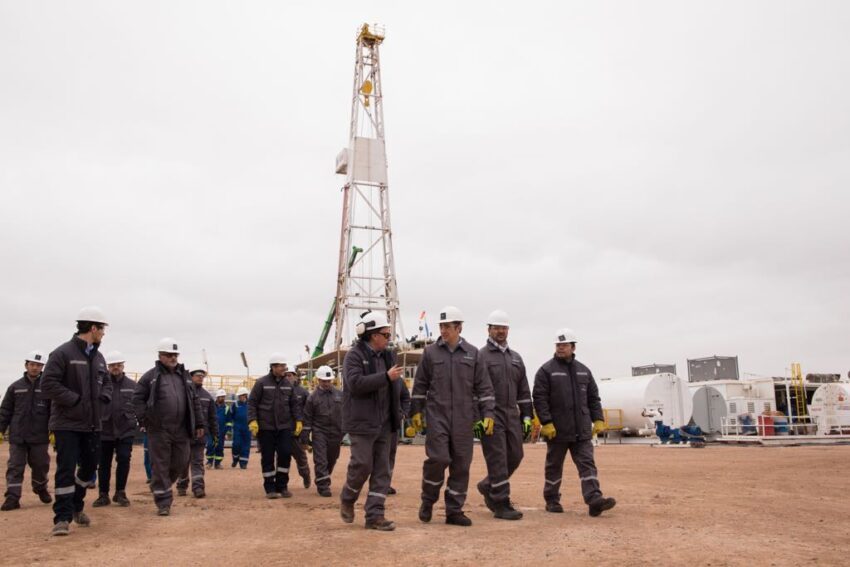President Alberto Fernández is seeking funding for an export pipeline that would channel Vaca Muerta’s gas to neighbouring countries
Argentina has secured $540 million from the Latin America Development Bank to finance a new pipeline that would allow for “record” gas exports.
The bank announced a deal last week to finance the Néstor Kirchner pipeline, a project that would allow the country to export gas from the Argentinian Patagonia’s Vaca Muerta field, which campaigners have described as a ‘carbon bomb’ due to huge emissions potential.
Vaca Muerta currently holds the world’s second-largest shale gas deposit and could lead to “record oil and gas production,” according to Argentina’s president Alberto Fernández.
Sergio Massa, minister of economy, said in the past that Argentina did not have the finance to carry the project forward, but now they have an “opportunity for Chile, Argentina, Bolivia, Brazil and Uruguay to access the world’s largest reserves of gas, which we have at our disposal”.
The move could contribute to pushing global temperature rise beyond 1.5C – a threshold above which climate impacts will be significantly worse for people and ecosystems. The International Energy Agency stated in a 2021 report that new oil and gas projects are incompatible with international climate goals.
Chinese coal boom a ‘direct threat’ to 1.5C goal, analysts warn
Carbon bomb
Activists are critical of the initiative due to its impact on carbon emissions. However, the national government points to Vaca Muerta as an economic hope.
According to 350.org in Latin America, the project is a “carbon bomb” that threatens to use up more than 11% of the world’s remaining carbon budget to reach 1.5C.
Talks to expand gas exports from Vaca Muerta date back to the early 2000s, but were abandoned after Argentina focused its gas production for domestic use. But a 2010 discovery found large gas reserves and led to initiatives to boost exports.
Currently, 31 oil and gas companies have contracts to operate in Vaca Muerta, among them Shell, ExxonMobil and Argentinian company YPF.
To transport shale oil and gas from Vaca Muerta, the Néstor Kirchner pipeline will run more than 570 kilometers from Tratayén, in the shale fields, to northern Argentina’s Santa Fé province.

A map of the Vaca Muerta field in the Argentinian Patagonia. (Photo: Ministry of Economy of Argentina)
Ilan Zugman, 350.org Latin America managing director, said the fracking technique used in the oil and gas extraction is dangerous to the environment. Chemicals used in the process are polluting rivers.
According to 350.org estimates, costs from healthcare, stranded assets and oil spills from Vaca Muerta’s operations could reach between $2.2 and $5.6 billion, compared to the estimated project profits of $2.1 billion if all the oil and gas is exploited.
The first stretch of the pipeline is set to be inaugurated by the middle of this year. At the same time, Argentina is experiencing its hottest recorded summer. The combination of heatwaves and drought is affecting agricultural yields, causing economic losses and negative health impacts.
The high temperatures and drought sparked fires that affected critical energy infrastructure. For several days, about half of Argentina faced blackouts.
Help from abroad
Zugman said Argentina does not have sufficient resources to bring to market all of Vaca Muerta’s oil and gas by itself. As a result, the government is seeking deals overseas to finance critical export infrastructure
Read More

